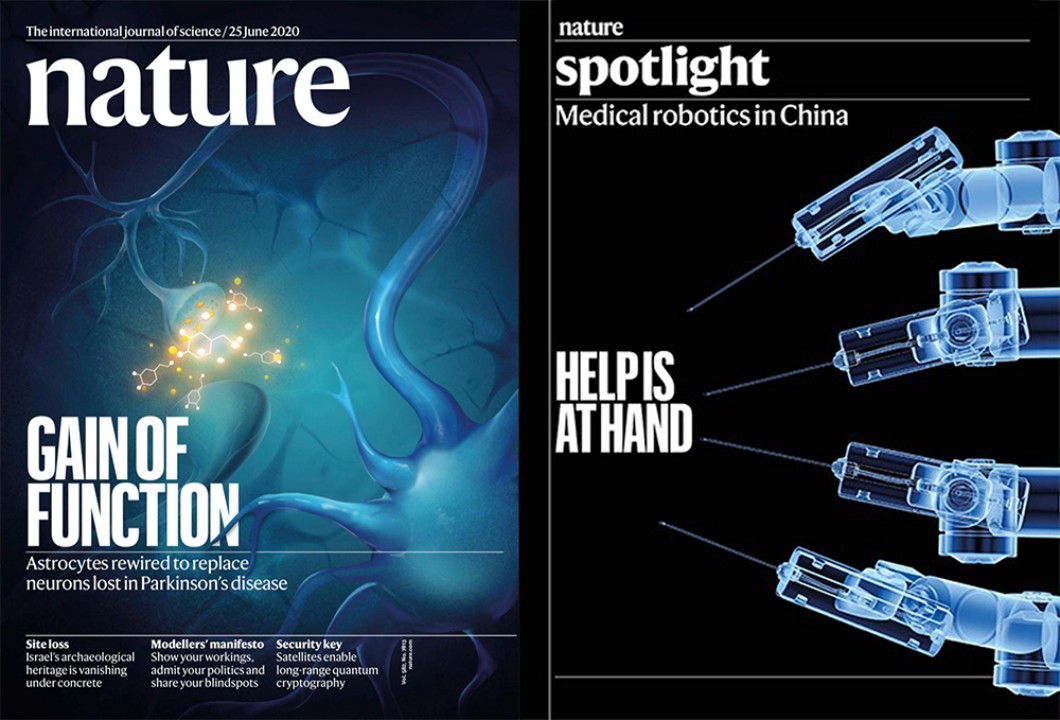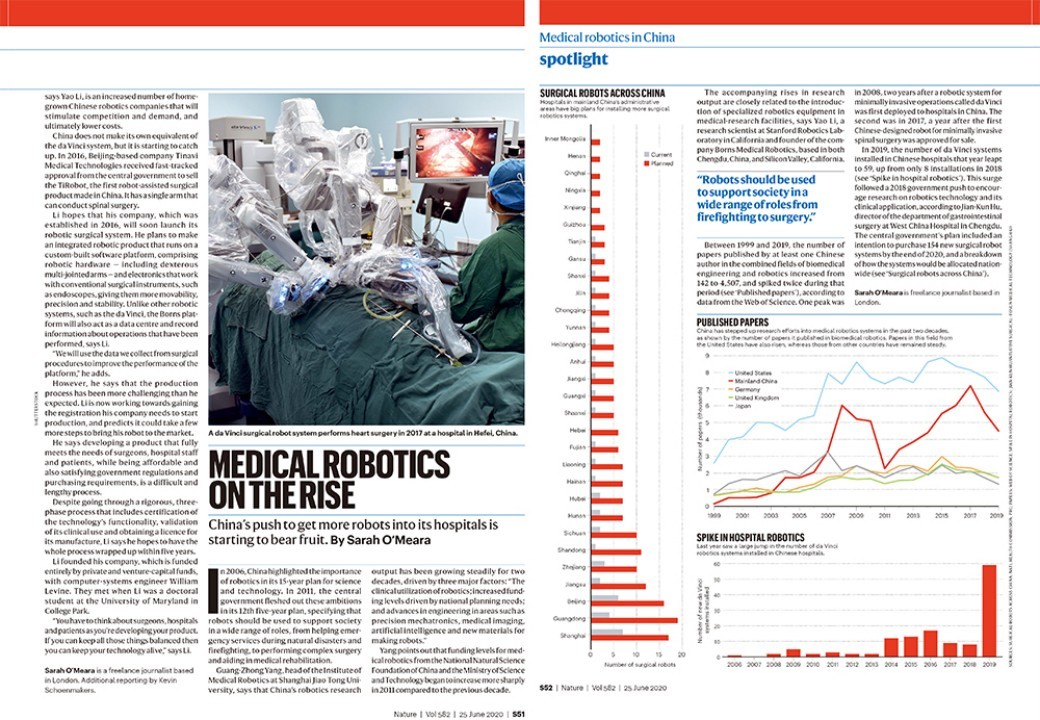Nature, a Top International Science Magazine, In-depth Report on Borns
Release time: Jun 24,2020

In June 2020, Nature, a top international scientific journal, reported in depth on Chengdu Borns Medical Robot Co., Ltd. and its minimally invasive surgical robot under the title of "Medical Robot in China". Nature is one of the most authoritative scientific journals in the world, whose mission is to report major discoveries and breakthroughs in the scientific world in a timely manner. Its aim is to "introduce the important results of scientific discovery to the public, so that the public can know as soon as possible all the progress made in every branch of natural knowledge in the world". This paper introduces the research and development goal of Chengdu Borns Surgical Robot, that is, "customized software platform, flexible mechanical arm and precision electronic system, to achieve the control of conventional endoscopic surgical instruments, including more flexible mobile scenes, higher precision surgical operation and more reliable and stable safety performance".

The article points out that in order to make robots more "Chinese", Borns has conducted a full survey of the Chinese medical market. In view of China's medical environment and clinical needs, the surgical robot developed is characterized by specialization, modularization and compatibility, which can be flexibly combined according to the type of operation, making the operation process more intelligent, effectively reducing the risk of operation and speeding up the recovery after operation. It is emphasized that Borns series products have complete core technology and independent intellectual property rights. The article holds that the intelligent surgical technology proposed by Borns is different from the existing surgical robots. Through the hardware platform and data center, the system can achieve the goal of deep learning and performance improvement, including more flexible mobile scenes, more accurate surgical operation and more reliable and stable safety performance. The article also quoted an interview with Hu Jiankun, director of surgery at West China Hospital of Sichuan University, one of the most prestigious medical centers in China, about the clinical application of surgical robots. Director Hu pointed out that his hospital has planned to introduce robotic technology since 2012. Its purpose is to provide patients with excellent services in minimally invasive surgery and to alleviate the heavy workload of staff. For example, in surgery for gastric or colorectal cancer, robotic systems help surgeons see the small lymphatic vessels, veins and nerves that need to be protected. "The COVID-19 outbreak has prompted hospitals to accelerate the clinical use of robotic technology," he added.
Brief Report


